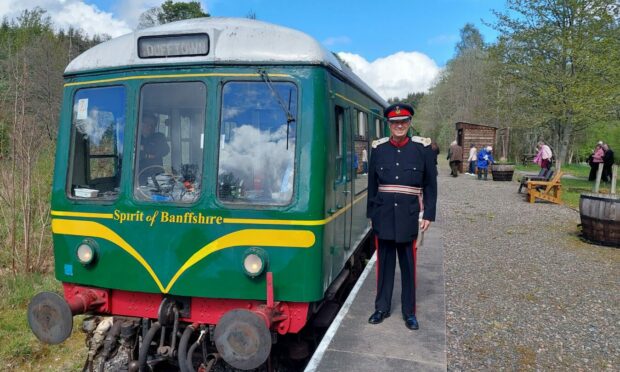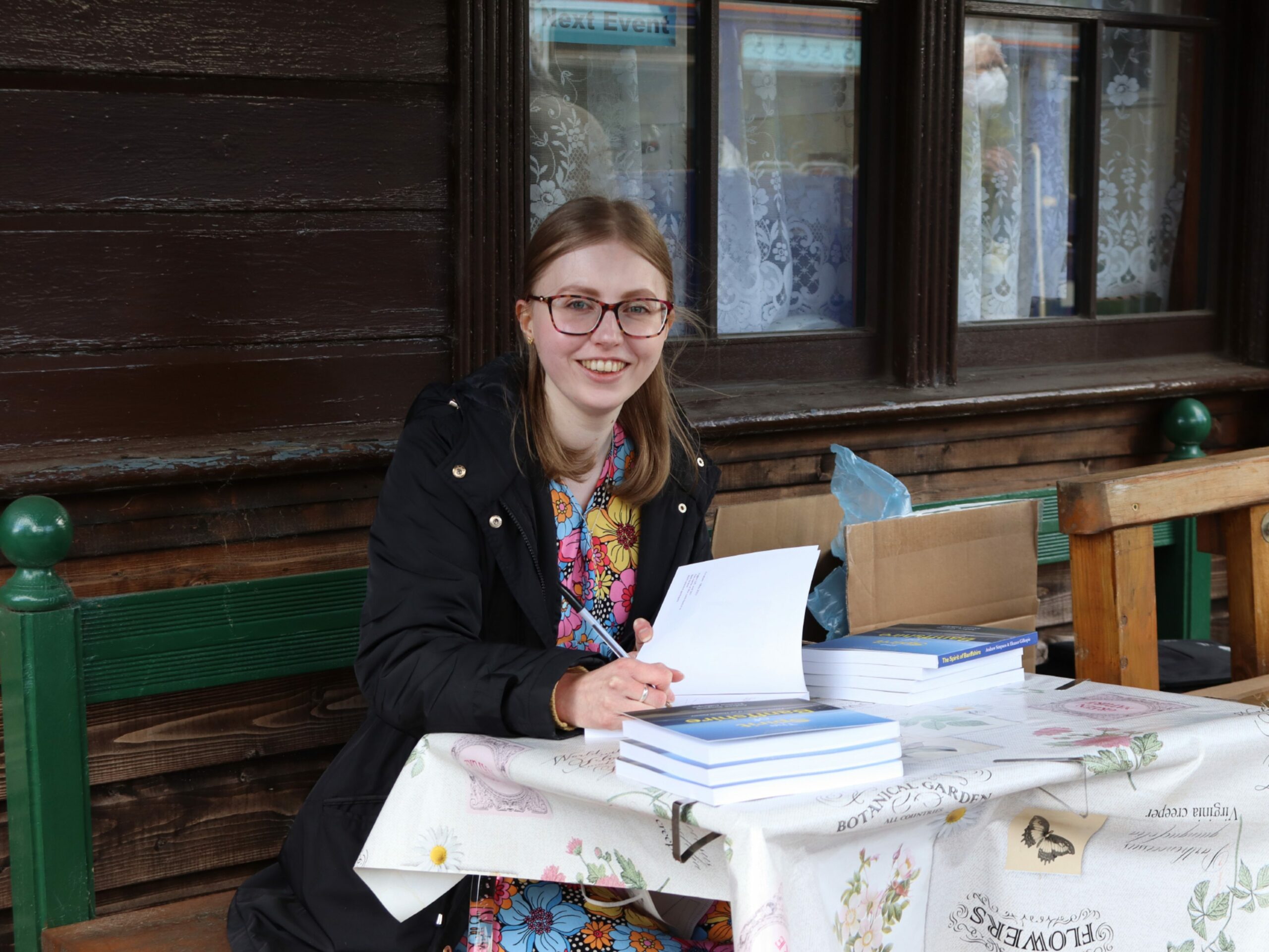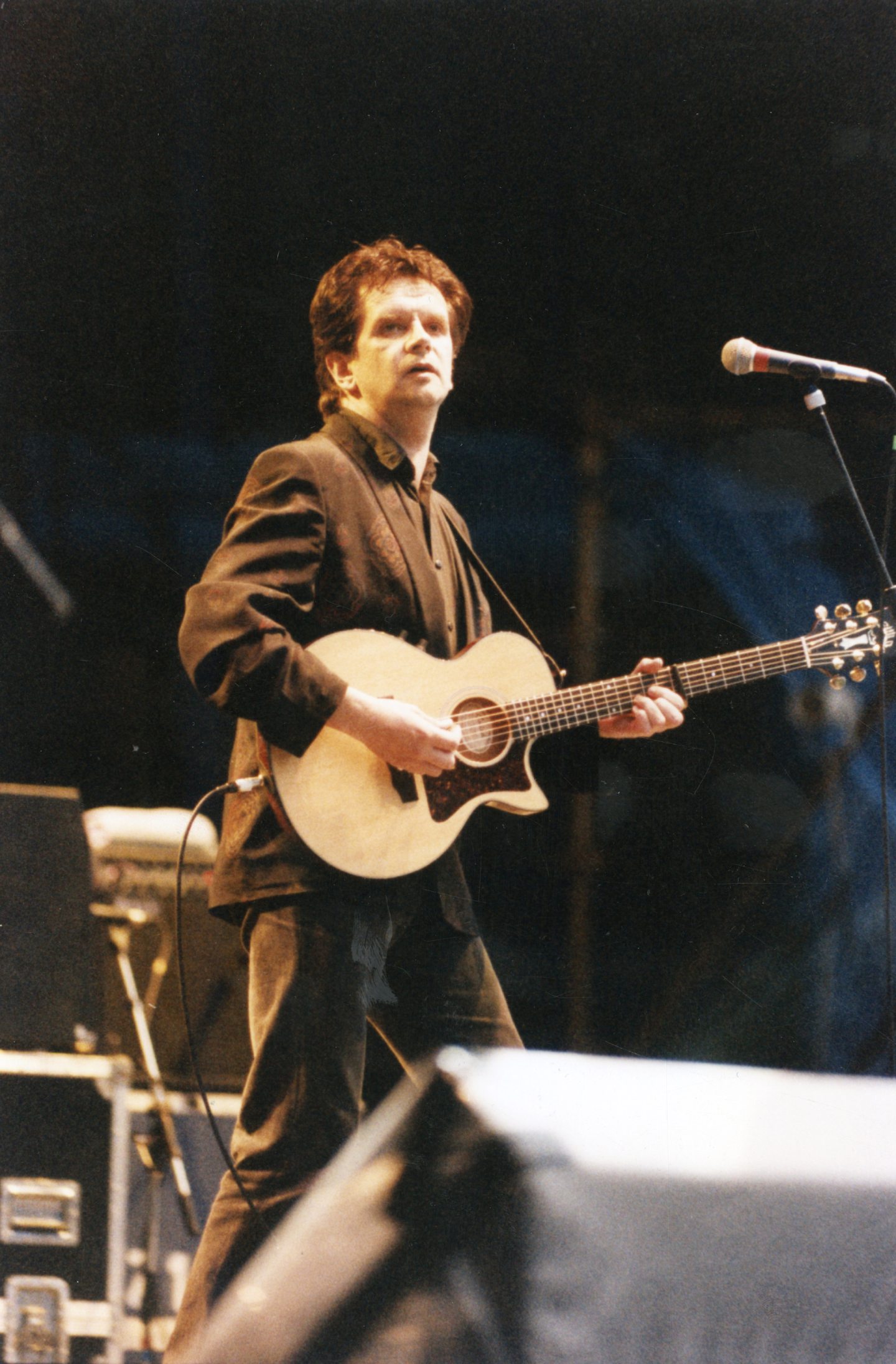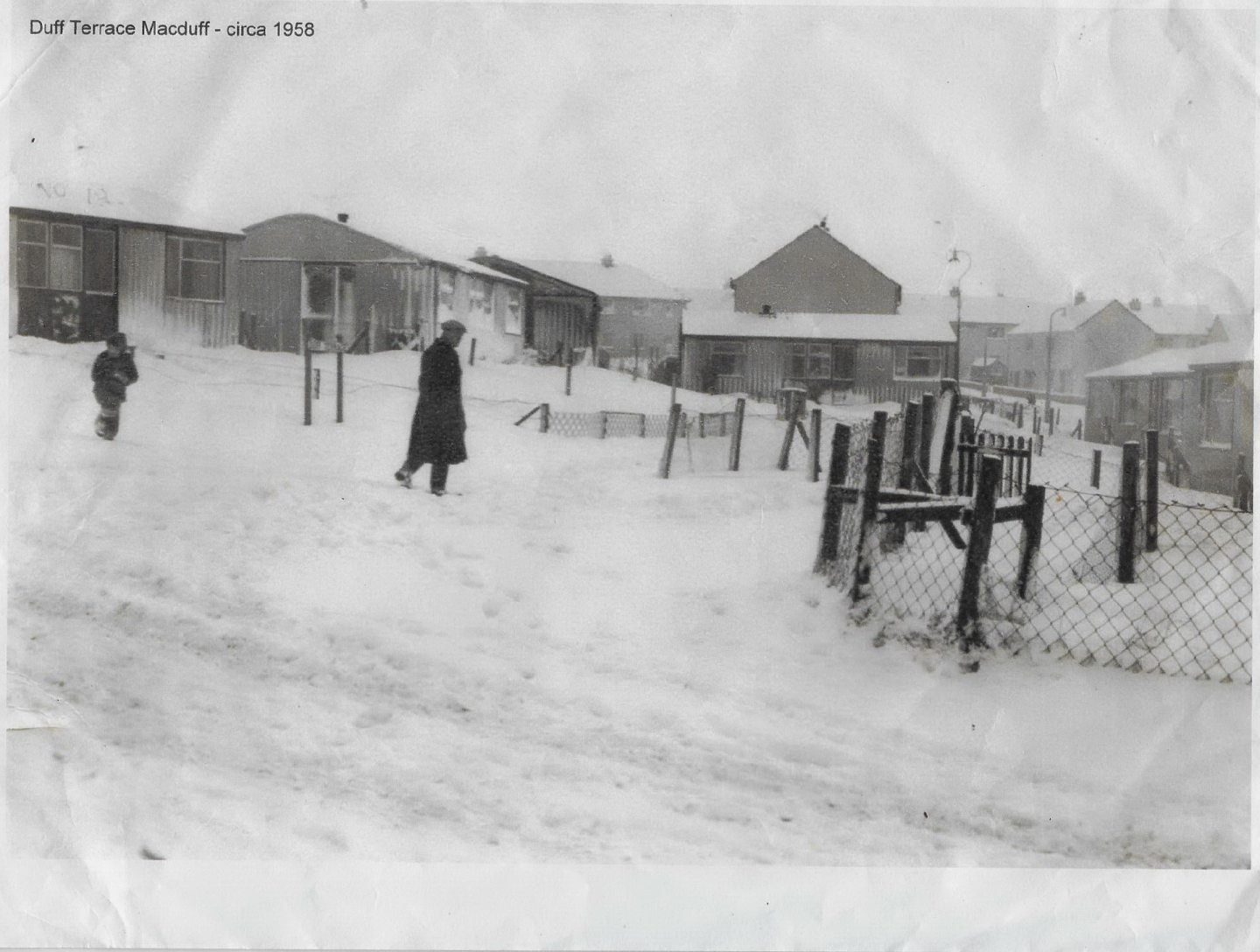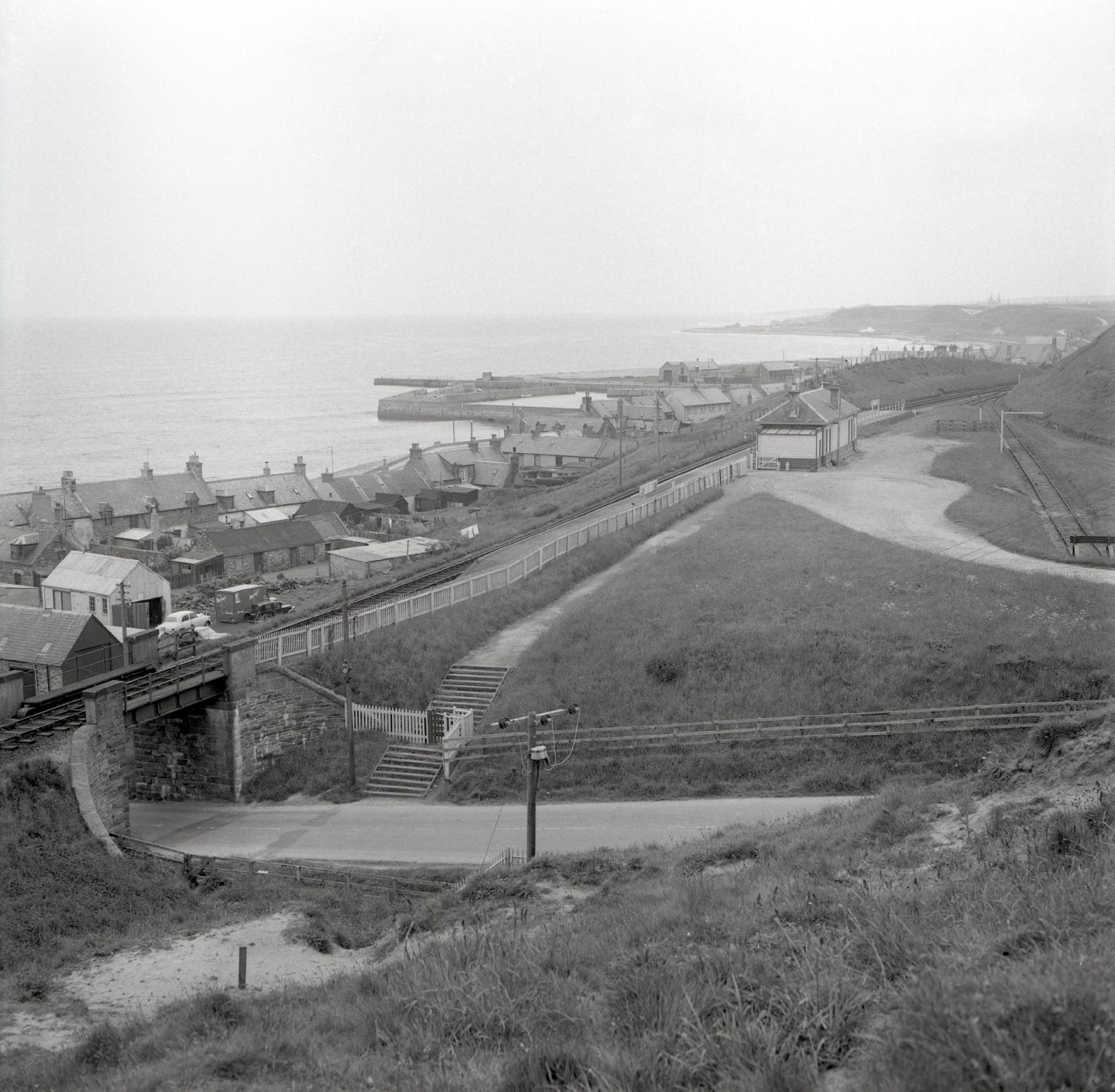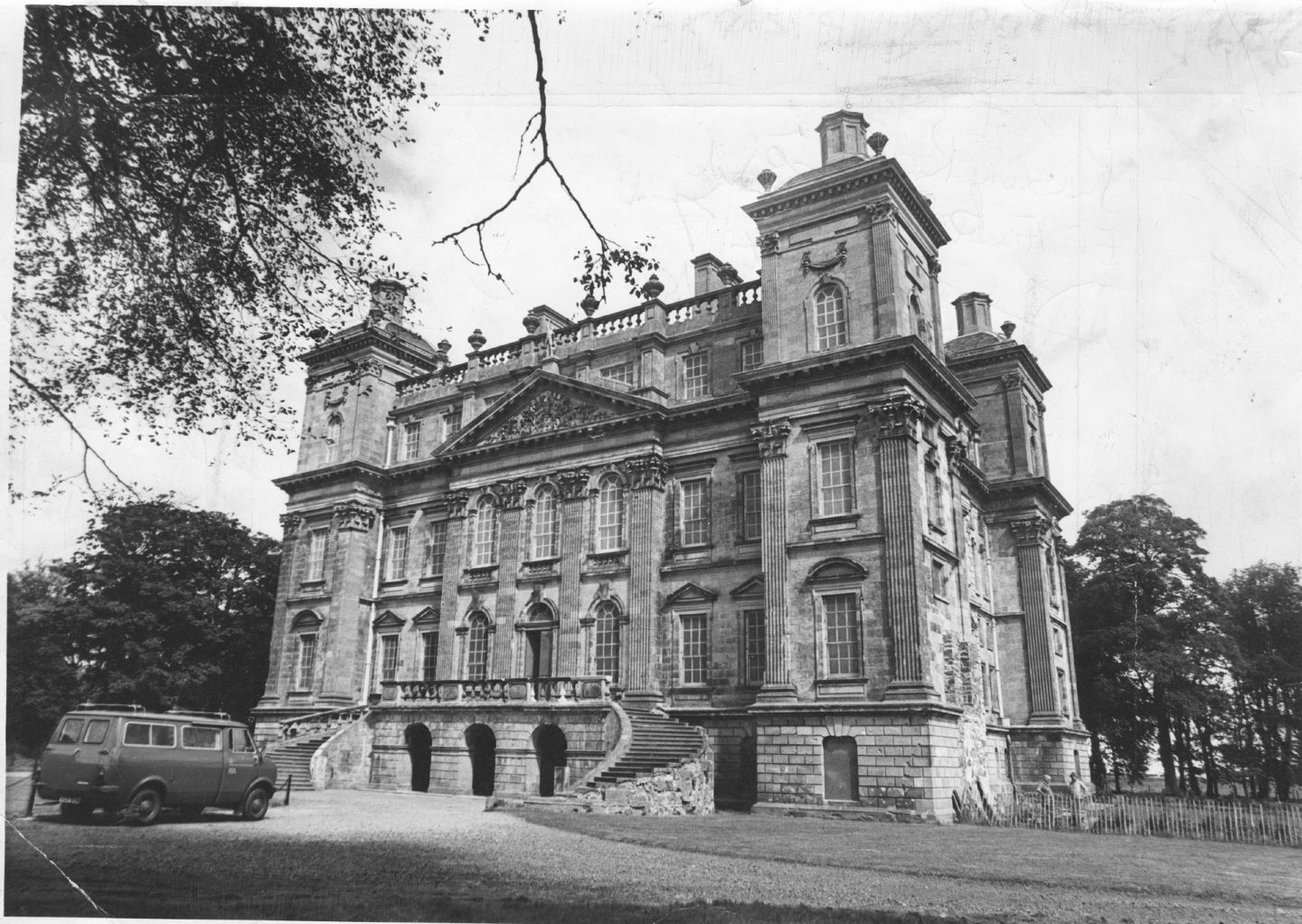Banffshire is famous for its traditional fishing villages and rugged coastline, stretching from the Moray Firth to the Cairngorms.
It’s an unprepossessing part of the world, but those who dwell there swear by its myriad qualities and many of these attributes have been recorded and brought together in a new book to mark the Queen’s Platinum Jubilee.
The Lord-Lieutenant Andrew Simpson invited residents to record their memories of a wide range of topics, from people and places to schooldays, war and the weather and received a massive response of vivid and lively stories.
It adds to up an eclectic mix
There are reminiscences about the cherished Tarlair pool; the popular steam trains which used to ferry passengers across the region; the arrival of Nazi spies in a dinghy during the Second World War in Portgordon; and of how one canny youngster escaped from a train in the midst of a blizzard.
The authors, Mr Simpson and Eleanor Gillespie, set out to create an evocative account of a historic county and they have succeeded in their objective.
As the former said, when I asked what tales had most impressed him: “A simple answer is all of them. As we collected the stories (of no more than 200 words), I felt privileged to be getting a personal insight into life as it was, over the time of HM The Queen’s life and reign. In particular, people’s individual memories of specific events helped to bring these occasions to life.”
So let’s hear from some of the many voices who have contributed.
Pat Wain on Tarlair Swimming Pool
“I was at the Runrig concert the day before Wet Wet Wet performed [at the venue in 1994], supporting a singer who went through art school and teacher training with me.
“There was a wonderful Celtic backdrop for their stage design. The bit I personally remember is a line of workers with big brooms trying to brush back the sea as it was draining through the pool which was where loads of spectators were standing. They obviously didn’t have holidays at the seaside.
“Part of the end of season celebrations from when the pool was in use included conga dancing from the Pavilion block all the way round the outer big pool wall. A health and safety nightmare, nowadays.”
John Sinclair on a train escape
“One day, when I was attending Buckie High School in the late 1950s, the weather was very bad with a blizzard raging. We ran to the bus station to be told that the buses had stopped running because the road to Finechty was blocked by snow drifts.
“We then ran to the train station and managed to get a train along the coast. We got to about a mile from Finechty when the train slammed into a cutting full of drifted snow and stopped.
“We sat there, looking at the snow, up to the bottom of the windows, then the lights and the heating went off and we started to get cold.
“I managed to ‘drop’ the window and I put my schoolbag in front of my face and dived straight out into the snow. I sank to the bottom and ‘swam’ up the embankment under the snow.
“The field was ploughed with furrows leading to the road, so I followed them and climbed over a fence and eventually got to Findochty.
“I slept in my own bed that night, but many [other pupils] didn’t, and they spent a long cold night on the train. The next day, the road was still blocked, but the railway people got a steam train which pulled the diesel one back to Buckie and shifted the drift in the cutting with a snowplough on the front.”
John Strachan on German spies
“A true story from the Second World War was that three German spies, two men and a woman, were flown from German-occupied Norway by flying boat and landed on the sea near Portgordon.
“They were put into a rubber dinghy with three bicycles and told to cycle south. The bikes fell off, but the spies landed without any further problems.
“One decided to travel west, but the remaining man and woman walked to the train station at Portgordon, asked the station master for two tickets to London and gave him a ten-pound note.
“It was never possible to buy a ticket to London directly from the small stations along the Moray Firth. You could buy a ticket to Aberdeen and then a ticket to London from there.
“The station master thought that this was strange and, as he had never seen a ten-pound note in his life before, made an excuse to check in his inner office if he could sell them tickets.
“He then phoned the police and the spies were arrested. They were both executed. The fate of the third spy is not known.”
Kay Cronin (recalling her father Bill McLean) on a tipsy mouse
“My dad worked as a cooper in Knockdhu Distillery from 1964 until it closed for a number of years. Dad had seen many a man under the influence of the whisky over the years, but….
“One day, he was working in the cooperage. At times, it was the top of the barrel that needed fixed while it was still full of whisky. When this was the case, there were times when some whisky would slop out of the barrel.
“He and a couple of other men were amused to see a wee mouse run out from a hole and take a drink of the whisky puddle, then run back into the hole.
“The mouse did this every now and then until, later in the day, Dad saw the mouse lying on its back with its legs in the air – it was drunk!
“The men left the mouse and, on returning, discovered that it had disappeared – presumably with a very sore head!”
Morag Baptie on curling at Duff House
“Buried just inside the gates of Duff House grounds, under a layer of moss and leaf mould, there lies a curling rink. It was commissioned by the Banffshire Curling Club in 1908 and consisted of a tarmacked surface which only needed a thin layer of water to freeze over in the winter.
“By the mid 1960s, the rink was in a derelict state, but some schoolmates and I took it upon ourselves to clean it up and use it for roller skating.
“For several Saturdays, armed with brooms and bags of soor plooms or butternut [sweets] from Candy Nellie’s, next to the cinema in Bridge Street [in Banff], we swept and weeded and explored the old clubhouse.
“It had tiny windows, one without glass, so if you were very small, you could clamber in and run your fingers through the dust on a remaining curling stone, which was still smooth and beautiful, and check for forgotten treasure in the fusty wooden lockers.
“Sadly, we discovered that the revealed surface of the rink was pitted and rough and it was treacherous to unprotected knees, so once again, it was abandoned. But we had had our fun.”
Louise Simpson on visiting war graves
“In the 11 days up to November 11 2020, the challenge was to visit all 38 sites in Banffshire that contain graves looked after by the Commonwealth War Graves Commission….to raise money for the Royal British Legion.
“However, it became much more than a tour of historic Banffshire. Every graveyard created memories. For each grave hinted at a story of service, bravery and a heartbroken family.
“Often, details on the inscriptions sparked a desire to find out more. Perhaps no more so than the corner of Grange Cemetery. Who was Karam Dad? The gravestone gave his army number and stated he was a driver in the Royal Indian Army Service Corp and died on December 2 1943, aged 22.
“The Arabic inscription of words from the Qur’an made it appropriate to leave only poppies rather than a remembrance cross.
“Further research showed that he was a mule driver brought to Scotland to support animal transport for Arctic warfare in Norway. He and others like him were being trained near Keith and also at Grantown.
“However, a railway accident at Knock led to him being buried thousands of miles from his family and home village in modern-day Pakistan.
“It was a tragedy like so many others – but 4,000 miles added a poignancy. We will remember them.”
Copies of The Spirit Of Banffshire are available from retailers throughout the north-east of Scotland and a full list can be found here.
You might also like:
Back on track: Carmyllie Pilot locomotive set to pull trains again at Speyside Railway
